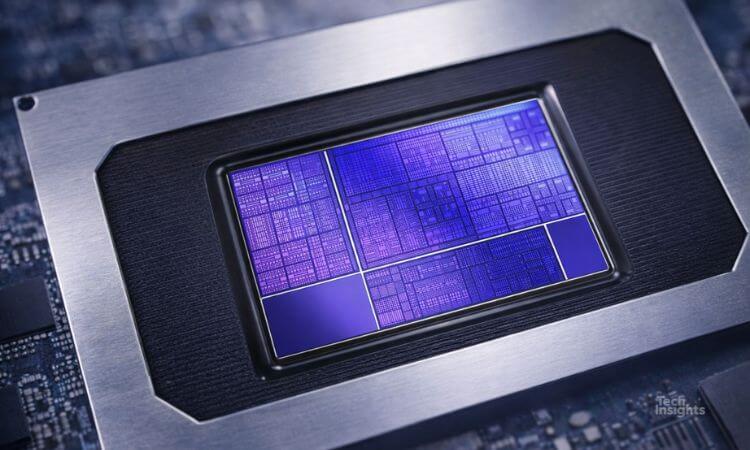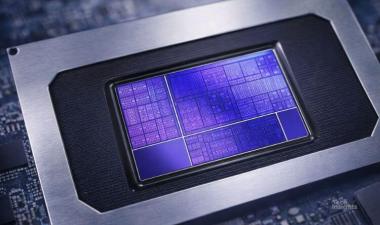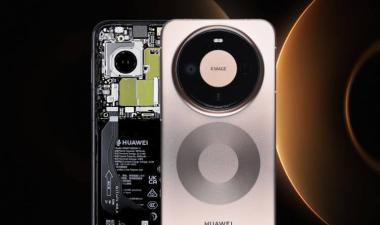Posted: August 14, 2019
Contributing Authors: Sinjin Dixon-Warren, PhD
Introduction
AC Adapters are a constant reminder that the mobile devices that we have come to love are not quite as mobile as we would like to think. Every single mobile device needs to regularly revisit an AC Adapter to recharge its lithium ion battery.
Originally, most AC adapters were essentially a linear power supply that combined a transformer with a bridge rectifier and a capacitor filter to convert the AC mains voltage to a smooth low voltage DC current suitable for charging a battery. These adapters were limited to specific AC voltage input to create specific DC voltage outputs, and hence could generally not be used internationally. They were also heavy and cumbersome, and generally a different adapter was required for each device needing DC power. Finally, the linear transformer-based technology is inefficient, as unneeded power is dissipated as heat, and power is dissipated even when there is no load current.
Switch mode power supplies (SMPS) have been gradually displacing linear transformer-based technology since the 1980s. A variety of circuit topologies are used, but essentially, they are all based on the same principle. The AC voltage is rectified to a high DC voltage that drives a switching circuit, which contains a transformer operating at a high frequency, and outputs DC current at the desired low voltage. The great benefit of SMPS is that they can be used with various AC input voltages, thereby making “international” adapters possible. Furthermore, they can be configured to produce a variety of DC outputs. Voltage regulation is achieved by varying the ratio of on-to-off time of the high voltage switching circuit.
The relatively new USB-C power delivery standard aims to provide variable charging power up to 100 W (e.g. 20 V and 5 A), so that a single AC adapter can then be used to charge a wide variety of devices. Furthermore, the cables are bi-directional and hence the same cable can be used to charge a laptop from a monitor or a smartphone from the laptop. The charging power and voltage is dynamically configured when the devices are connected.
The SMPS for consumer applications typically require a field effect transistor (FET) rated for about 600 V. This FET is used for the high frequency switching of the high voltage that drives the transformer in the SMPS. Suitable FET’s can be fabricated with wide bandgap gallium nitride (GaN) or silicon carbide (SiC), or with silicon (Si). Silicon super-junction MOSFET technology presently dominates the mobile devices AC adapter market, but GaN and SiC devices promise higher efficiency and lower form factors. The GaN devices being proposed are lateral high electron mobility transistors (HEMT) formed on GaN-on-Si substrates. There are several AC adapter start-ups playing in the wide bandgap market space, but so far none of the major original equipment manufacturers (OEM’s) have adopted this technology. In this article we will review the results of some of our analysis of AC adapters purchased in the open market.
Avogy Zolt
In 2016 TechInsights (formerly Chipworks) looked inside the Avogy Zolt Laptop Charger model number ZM070LTPX01-G. Avogy claimed to be a vendor of GaN devices; however, TechInsights found that the Zolt contained a SiC power FET, likely fabricated by Cree, but packaged with Avogy markings. Our colleagues at PntPower.com subsequently argued that Avogy used a SiC device for four reasons, the primary being that SiC was available and working at that time. Figure 1 shows the main PCB from the Zolt laptop charger, with the location of the AV150-00028 SiC device indicated.
Figure 1: Zolt Laptop Charger Main PCB
Table 1 below shows the full design-win list for the Zolt charger. The device is relatively complex and includes an Infineon 600 V CoolMOS devices, plus three lower voltage Infineon OptiMOS devices and the Avogy branded SiC power FET device.
| Manufacturer Name | Model Number | Device Type | Prominent Markings |
|---|---|---|---|
| Texas Instruments | LP2951-50DRG | Voltage Regulator | ZUF 54K AKYP |
| Texas Instruments | UCC27511DBV | Logic IC | 7511 |
| Texas Instruments | TL431AQDBZ | Voltage Regulator | TAQS |
| Fairchild | FODM121C | Photocoupler | (logo) 121C 523R |
| Texas Instruments | LMC555CMMX | Other | 4AT6 ZC5 |
| Infineon | IPL60R199CP | 600 V CoolMOS | (logo) 6R199P HBK303 |
| Unitrode | UC3842D8 | PWM Controller | U 36 38C43 |
| Texas Instruments | SN74AHCT1G32DCK | Logic IC | BGG |
| Texas Instruments | SN74AHCT1G32DCK | Logic IC | BGG |
| Texas Instruments | SN74AHC1GU04DCK | Logic IC | AD3 |
| Infineon | BSC010NE2LSI | 25 V OptiMOS | 010NE2LI HRH431 (logo) |
| Infineon | BSC010NE2LSI | 25 V OptiMOS | 010NE2LI HRH431 (logo) |
| Alpha & Omega | AOZ1232QI-01 | DC-DC Converter | (logo) Z1232QI1 ZA5V1E |
| Maxim | MAX14667 | Other | AETH |
| Maxim | MAX9938WEBS | Power Amplifiers | AGI 6AF |
| Infineon | Teardown | Power MOSFET | 0902NSI H1F 521 |
| Comchip Technology | Z4DGP406L-HF | Power Rectifier | Z4GP 40JL 533 |
| Microchip Technology | PIC32MX270F256D-V/TL | Microcontrollers | (logo) PIC 32 MX270F2 56DVTL |
| Infineon | BSZ0902NSI | 30 V OptiMOS | 0902NSI HAD534 (logo) |
| Texas Instruments | UCC27512 | Logic IC | 27512 TI 57I C0R3 |
| Avogy Inc | AV150-00028 | SiC Power FET | 150-00028 FV0931 CS1527 |
Table 1: Avogy Zolt Design Wins
Avogy has apparently ceased to exist as an independent company, but the Avogy Zolt still seems to be available from Amazon, although based on some customer comments it may have reliability issues. A die photo of the SiC die extracted from the Avogy AV150-00028 is shown in Figure 2. The die was likely made by Cree Inc.
Figure 2: Avogy AV150-00028 SiC Die
RAVPower RP-PC104
Since 2016 GaN has made considerable progress in the commercial market and there are an increasing number of vendors that are now offering AC adapters based on GaN, including RAVPower, Anker, FINsix and Made in Mind (Mu One) and others. A large number of vendors are offer GaN FET devices, ranging from small startups like GaN Systems and Navitas to large established players like Infineon and Panasonic.
Recently, TechInsights published some results for the RAVPower RP-PC104 45 W USB-C charger which was advertised to contain GaN and is also available from Amazon. We found the RP-PC104 contained two Navitas NV6115 GaN power IC’s, as shown in Table 2 below. Figure 3 presents a photograph of the RP-PC104 main PCB with the location of the Navitas NV6115 annotated.
Figure 3: RAVPower RP-PC104 Main PCB
TechInsights subsequently found the Navitas devices in, the Made in Mind Mu One 45 W charger, and in the Aukey PA-U50 24W USB charger. The Mu One charger had essentially the same design as the RavPower charger, both apparently being based on Navitas reference designs. The Aukey PA-U50 was of particular interest, since it was found to contain the new Navitas NV6250 integrated half bridge IC. TechInsights is presently working on a complete analysis of the Navitas NV6250. Figure 4 shows a photograph of the NV6115 integrated GaN HEMT die from the RP-PC104.
| Manufacturer Name | Model Number | Device Type | Prominent Markings |
|---|---|---|---|
| Navitas Semiconductor | NV6115 | GaN Power IC | (LOGO) Navitas NV6115 B3K |
| Navitas Semiconductor | NV6115 | GaN Power IC | (LOGO) Navitas NV6115 B3K |
| Diodes Inc | MSB30M | Power Rectifier | - + MB30M 8B15 |
| Vanguard International | VS3506AE | -30 V P-Channel FET | VS 3506AE YY9F33 |
| Silicon Laboratories | Si8610BB-B-IS | Digital Isolator | Si8610BB 1751BF (e3) L0KU |
| Everlight | EL1018-G | Photocoupler | EL 1018 822V |
| Texas Instruments | UCC28780RTE | Other Controllers | U28780 TI 858 A4FL |
| Infineon | BSC098N10NS5 | 100 V OptiMOS | 098N10NS HAK623 |
| Weltrend Semiconductor | WT6615F | USB Controller | WT6615F 000 827C I64AF |
Table 2: RAVPower RP-PC104 Design Wins
Figure 4: Navitas Semiconductor NV6115 Integrated GaN HEMT Die
Innergie 60 C
TechInsights recently purchased an Innergie 60C USB-C 60 W Adapter, which is manufactured by the Delta Electronics Group, and which was anticipated to contain a GaN device. Internet rumors suggested that the device actually contained a 600 V Infineon CoolMOS super junction MOSFET and that Delta had obscured the markings with security paint. TechInsights teardown of the Innergie 60C confirmed the presence of the 600 V Infineon IPL60R185C7 CoolMOS device and the use of security paint and furthermore did not find a GaN component. Figure 5 shows a photograph of one several small PCB’s found inside the Innergie 60C. The location of the Infineon IPL60R185C7 600 V CoolMOS, with the markings obscured, is annotated.
Figure 5: Innergie 60C PCB
The design wins for the Innergie 60C are summarized in Table 3. TechInsights plans to complete a detailed analysis of the 600 V Infineon IPL60R185C7 CoolMOS device. Figure 6 shows a photograph of the Infineon IPL60R185C7 600 V CoolMOS die.
| Manufacturer Name | Model Number | Device Type | Prominent Markings |
|---|---|---|---|
| Diodes Inc | MSB30KH | Power Rectifier | - + MSB30KH 8B2 |
| Everlight | EL1013 | Photocoupler | EL 1013 826V |
| Infineon | BSZ086P03NS3-G | -30 V Power MOSFET | 086P3N HAH743 (LOGO) |
| On Semi | FDMS86150 | 100 V N-Channel FET | (LOGO) DJ08AC FDM |
| Gulf Semi | GU1M-E | Power Rectifier | (LOGO) E GU1M |
| Unknown | T31.5A250VCQMST | Other | T31.5A250VCQMST (CCC) (VDE) RU |
| Unknown | DAP030H | Other Controllers | DAP030H PFFH38G |
| STMicroelectronics | STM32F072CBU7 | Microcontrollers | STM32F 072CBU7 8205 GQ24L 15 |
| Infineon | IPL60R185C7 | 600 V CoolMOS | (LOGO) 60C7185 HAD831 |
Table 3: Innergie 60C Design Wins
Figure 6: Infineon IPL60R185C7 600 V CoolMOS Die
Concluding Remarks
TechInsights analysis demonstrates that high power, compact AC adapters can be built using SiC, GaN and Si super junction devices. Inspection of several commercial charges from the major OEM, including the Google Pixel 3, Huawei Mate 200 Pro and the Nokia 9 PureView fast charger found silicon super junction MOSFET technology. Quite clearly, silicon technology continues to dominate this market space. TechInsights believes that SiC is unlikely to achieve market success in the AC adapter market, due to the relatively high cost of this technology. The SiC technology appears to be more suited the high voltage applications and is successfully displacing silicon IGBT technology in the electric and hybrid vehicle market.
Curiously, in the case of the three AC adapters discussed here the Innergie 60C may be providing the best overall system performance. One of the metrics for performance of a mobile charger is power density, namely the watts produced per cubic cm of volume. The Innergie 60C is a clear winner by this metric, with the highest power density. The older Avogy Zolt is the has the largest volume and the lowest power density.
| Device | Length (inches) | Width (inches) | Height (inches) | Power (W) | Volume (in3) | Power Density(W/in3) |
|---|---|---|---|---|---|---|
| Innergie 60C | 2.4 | 1.2 | 1.2 | 60 | 3.5 | 17.4 |
| RAVPower RP-PC104 | 2.8 | 2.1 | 0.6 | 45 | 3.5 | 12.8 |
| Avogy Zolt | 3.5 | 1.3 | 1.3 | 70 | 5.9 | 11.8 |
Table 4: Power Density Comparison
The Innergie 60C is made by Delta Electronics Group an established manufacturer of AC adapters. They claim to manufacture 80 million notebook adapters per year. It is likely that the design of the Innergie 60C is highly optimized. Further optimization if likely required for the GaN-based devices, if they are to effectively compete with silicon super junction MOSFET technology.
Despite these finding which show that GaN AC adapters do not yet out-perform high quality super junction-based AC adapters in terms of power density, TechInsights believes that the known technological benefits of GaN will result in market success for GaN in the AC adapter market. It is likely GaN will be found in high efficiency, small form factor, higher power AC adapters. Quite clearly the market is betting that this will be the case. As mentioned, there are, at present, many players in the GaN HEMT power transistor market, including both relatively new start-ups and large established players such as Infineon. Infineon is presently the largest supplier of power electronics devices, and their portfolio the super junction CoolMOS devices, plus GaN-based CoolGaN devices and SiC-based CoolSiC devices. Infineon will be positioned to provide devices based on the material that is best able to meet the final requirements for each application, and they clearly believe that GaN HEMT devices have great potential in the AC adapter market, based on a White Paper on their web site.















